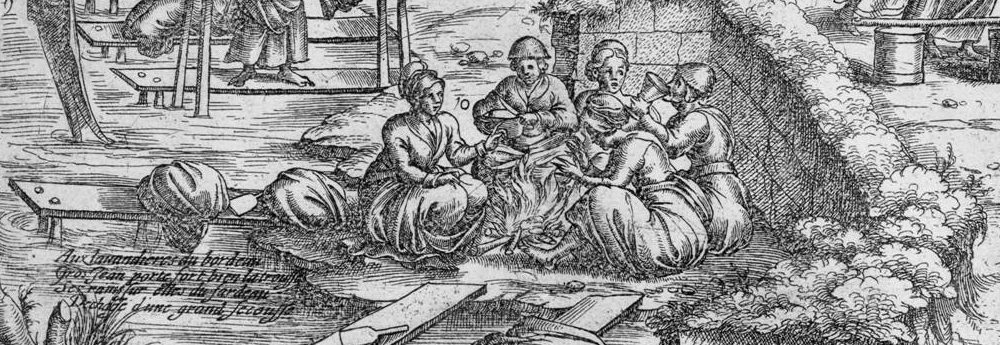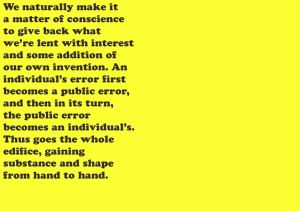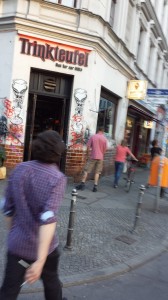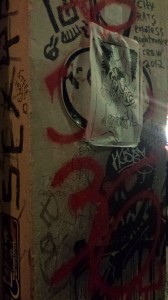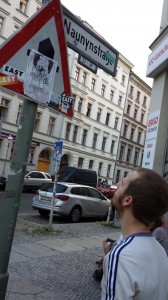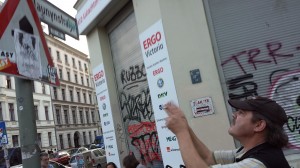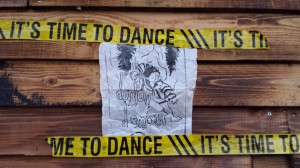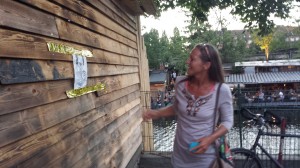Clare Qualmann reports on artworks using online translations to play a game of Chinese whispers:
I have been working with Emily on a series of artworks that take the form of games of inter-lingual Chinese whispers. I am interested in exploring how processes of translation shift meaning, lose their way, create new versions of texts, and generate nonsense along the way. One version of this is an experiment using online translation services to create multiple versions of a text – google translate and babelfish respectively, moving from language to language to see how meaning shifts (and is lost)
The starting point text, a quote from Montaigne about rumour, is first translated from English to Afrikaans, then from Afrikaans back into English, then from English to Albanian, and from Albanian back to English, and so on, moving alphabetically through the 72 languages that google can work with, and the 14 languages of babelfish (as babelfish does not order them alphabetically – I have followed the order in which they do offer them).
The resulting texts are visualised in these animated sequences, that show the transformation (in fits and starts) between sense and nonsense.
The full content of the texts can be read below:
